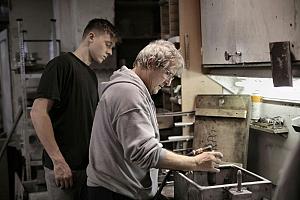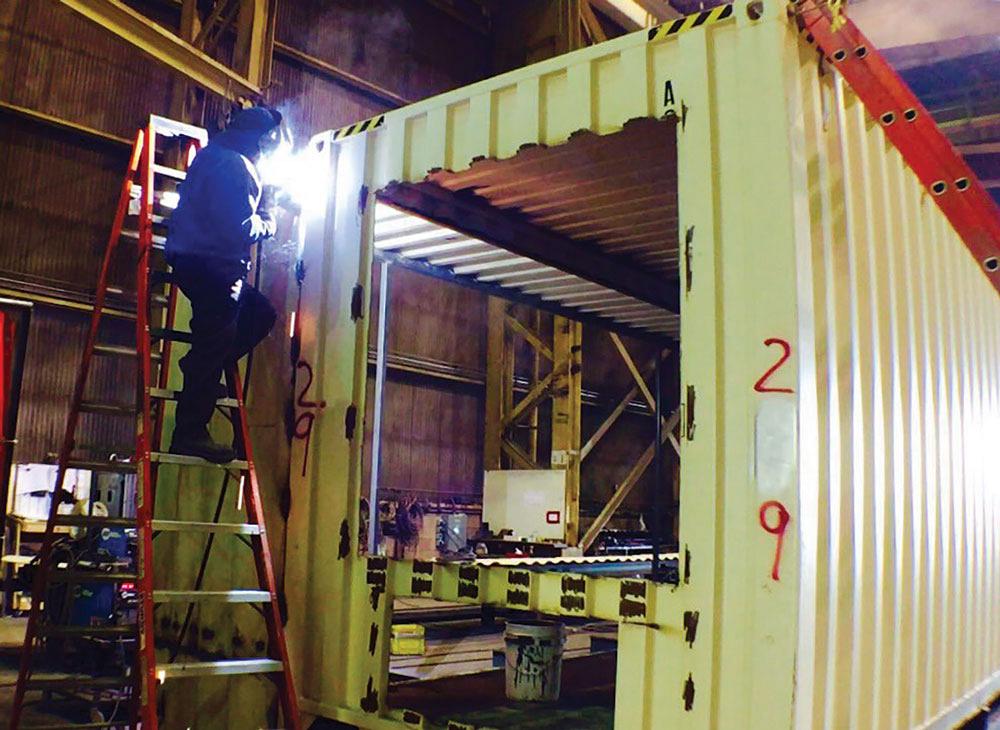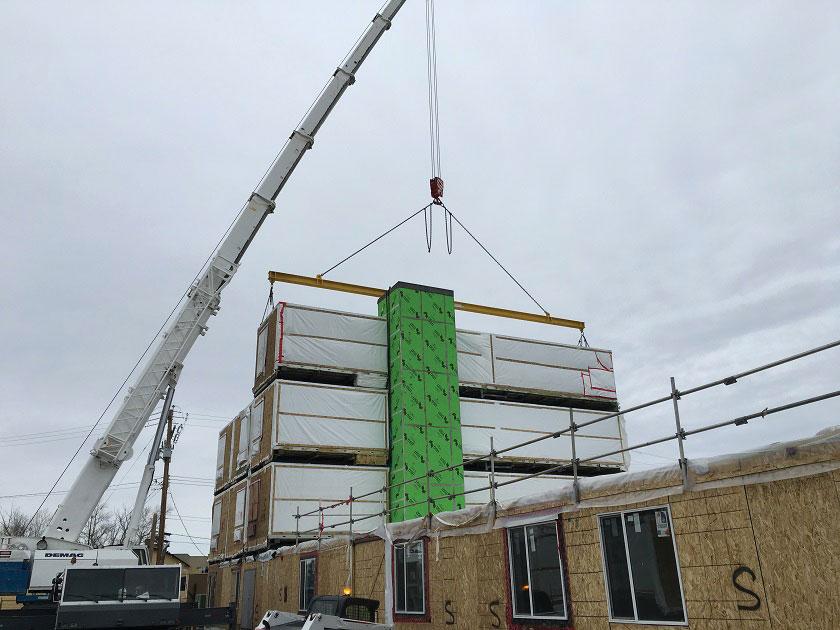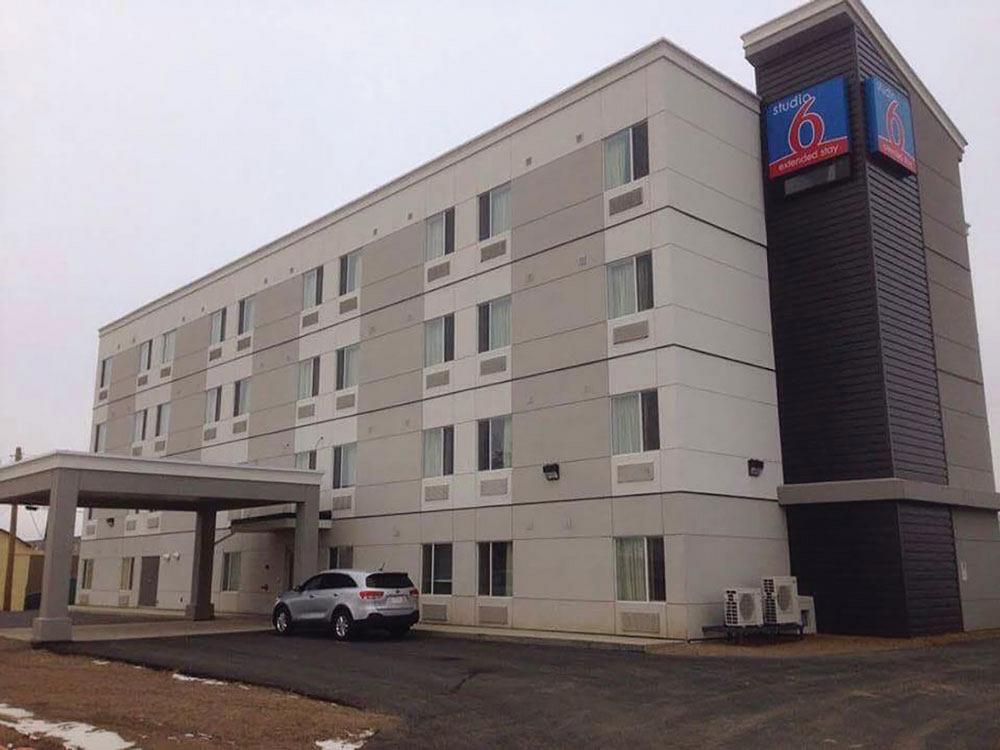Editor
- FMA
- The Fabricator
- FABTECH
- Canadian Metalworking
Steel shines in Ladacor’s modular construction and designs
The Calgary-based company shows how modified shipping containers can be turned into attractive multistorey buildings
- By Rob Colman
- March 27, 2017
- Article
- Fabricating
The use of steel shipping containers to create living spaces has been a niche pursuit for a while now. However, until recently these projects consisted primarily of mobile office units and bespoke cottages for the readers of Dwell magazine. Calgary, Alta.-based Ladacor is out to change that. The company has created its own design concept that allows it to build multistorey structures in about half the time using an all-steel design.
Thus far, the company has completed two hotels. Most recently it completed a four-storey, 63-room Studio 6 Extended Stay Hotel in Bruderheim, Alta.
Ladacor's Advanced Modular System™ (AMS) building technology repurposes surplus shipping containers into highly engineered, durable, non-combustible, code compliant modular units that meet CSA A277 standards.
“Obviously the dimensions of a shipping container are not suitable for a hotel room, so our factory and technology was designed to modify them through the fabrication process to create a viable hotel room of whatever dimensions are required," said Rhys Kane, Ladacor’s director of business development.
A fair bit of modification goes into the shipping containers, including cutting out sections for windows and other openings to create the size necessary for a proper hotel room. Ladacor’s team uses two Hypertherm portable hand plasma machines for that part of the work.
All of the interior framing is steel as well. Last year the company bought an automated Howick steel framing machine, which allows Ladacor to design and produce customized cold-rolled steel sections in-house.
“This machine allows us to fabricate our own metal studs for wall framing,” said Ken Werner, manufacturing manager. “We form the studs in the right lengths, reducing trimming waste.”
All other cut steel necessary for construction is contracted out and order cut to length.
“Our suppliers have much bigger equipment and better material handling capabilities,” said Werner. “The cutting of various plate shapes is also subcontracted to companies that have CNC plasma or waterjet capabilities.”
Ladacor’s facility is a 30,000 square feet former refrigerator factory. The AMS units are manufactured and audited to CSA A277 – Factory Certification of Buildings standards under a strict quality program. It’s what Kane referred to as a “drive-through” facility – the shop floor has two 100 tonne overhead cranes that make it possible to move a module from one station to the next as it is fully fabricated and fitted for plumbing, wiring, drywall and even furniture.
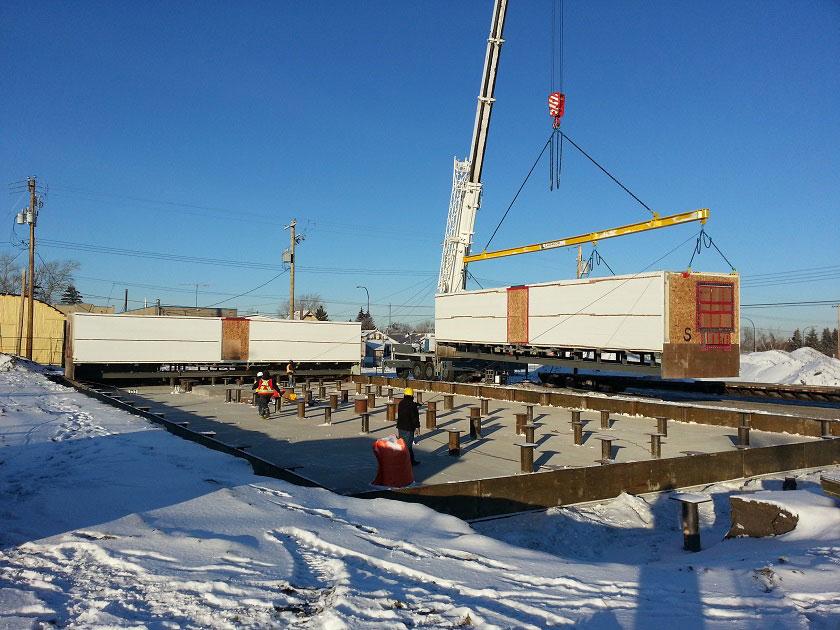
The Ladacor team on-site assembling the hotel. Here they are in the midst of putting the first two units on pilings to weld them in place.
There are four stations in the production line, the first of which is where all the fabricating and welding take place. Welding accounts for about 20 per cent of the fabrication work.
Ladacor has a team of seven welders who work in the shop and the go onsite to complete installation of the modules. It is a CWB-certified shop, and the team uses Miller equipment.
“In the shop we have been using flux core welding but we are transitioning to metal core welding, because it creates a cleaner weld with less cleanup required,” said Werner. “In the field, we use stick welding.”
“We can create basically a module of a fully finished hotel suite – either end of a module with a hallway in the middle, and we can then take that module, with others, and play LEGO with them on site,” said Kane.
The first project Ladacor completed was a Days Inn hotel in Sioux Lookout, Ont. The company has continued to refine its processes since.
“With that first project, we had smaller modules and more of them, so there was a bit more interconnection to do when the modules arrived on site,” said Kane. “We are now creating stronger modules that have a higher level of finish. We are able to do this because the entire structure is steel – durable and non-combustible. For the Days Inn project, we put in granite countertops all of the light fixtures and some of the furniture before transporting the modules.”
The foundation for these buildings are steel piles. Welders go onsite to weld the modules together and to these piles. A concrete floor is poured far enough below the tops of the piles to allow room for plumbing and wiring to run beneath the finished building.
Installation of the Studio 6 hotel took a few months. Each of the built modules contained two 325-sq.-ft. rooms with a central hallway. The modules were 12 ft. by 60 ft.
“Typically, we produced about five modules per week,” said Kane. “We also produced the four-story structural steel stairwell in one piece. Ladacor owns various different cranes so that we have the ability for full project execution on site as the general contractor.” A full four-story modular elevator was also installed by Ladacor.
Kane noted that projects like this hotel can be completed between 30 and 50 per cent faster than standard construction practices because so much can be completed offsite.
“And with this technology, it is possible to build structures of between 12 and 15 stories,” he noted. “Four stories is as high as we’ve gone so far, but when you start looking at the six to eight story market, we become very competitive as a non-combustible option. For affordable housing and seniors homes, this can be a very affordable option.”
In fact, the next project that Ladacor is working on is a seniors housing complex that is a Supportive Living 4 Dementia care facility. Such a facility requires sophisticated life safety and health care systems.
The hotel owners certainly appreciate the speed and sophistication of the manufacturing process.
Boris Javorski, partner in the hotel ownership, commented, "The Ladacor modular building technology offered a durable steel building with a fast-track construction schedule at a competitive turn-key price. The end product is of excellent quality and the building is indistinguishable from conventional construction." Javorski went on to comment that, "Hotel developers are searching for ways to increase rates of return, and the expedited schedule of the Ladacor construction technique makes this an attractive option. It's incredible that repurposed shipping containers can be remodeled in such a way to meet stringent hotel design brand standards. It's a testament to the ingenuity of the Ladacor technology."
Ladacor is also working on an affordable housing rental building in Edmonton, along with other multi-family housing, first-nations housing and other motels and hotels.
The value of steel in construction has never been questioned, but the diversity of applications perhaps haven’t been appreciated by the general public. Companies like Ladacor will no doubt start to change that when people get a chance to experience their work.
Editor Rob Colman can be reached at rcolman@canadianfabweld.com.
Ladacor, 587-352-5922, www.ladacor.comAbout the Author

Rob Colman
1154 Warden Avenue
Toronto, M1R 0A1 Canada
905-235-0471
Robert Colman has worked as a writer and editor for more than 25 years, covering the needs of a variety of trades. He has been dedicated to the metalworking industry for the past 13 years, serving as editor for Metalworking Production & Purchasing (MP&P) and, since January 2016, the editor of Canadian Fabricating & Welding. He graduated with a B.A. degree from McGill University and a Master’s degree from UBC.
subscribe now


Keep up to date with the latest news, events, and technology for all things metal from our pair of monthly magazines written specifically for Canadian manufacturers!
Start Your Free Subscription- Trending Articles
BlueForge Alliance partners with Nuts, Bolts & Thingamajigs to develop Submarine Manufacturing Camps

Orbital tube welding webinar to be held April 23
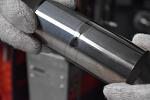
Portable system becomes hot tech in heat treatment

Cidan Machinery Metal Expo 2024 to be held in Georgia May 1-2
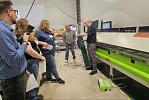
CWB Group launches full-cycle assessment and training program
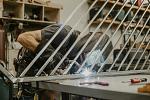
- Industry Events
MME Winnipeg
- April 30, 2024
- Winnipeg, ON Canada
CTMA Economic Uncertainty: Helping You Navigate Windsor Seminar
- April 30, 2024
- Windsor, ON Canada
CTMA Economic Uncertainty: Helping You Navigate Kitchener Seminar
- May 2, 2024
- Kitchener, ON Canada
Automate 2024
- May 6 - 9, 2024
- Chicago, IL
ANCA Open House
- May 7 - 8, 2024
- Wixom, MI





